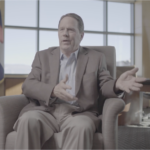Federal judge tosses Safeway employee’s religious discrimination claim against company

A federal judge has determined a Weld County woman failed to show that her employer, Safeway, discriminated and retaliated against her on the basis of her religion.
Brenda Medina, a Safeway worker for more than two decades, claimed the Fort Collins store where she worked had forced her to take unpaid leave during the winter holidays because she refused to ask customers for “Turkey Bucks” and “Santa Bucks” donations. As a Jehovah’s Witness, Medina objected because she does not celebrate those holidays.
On Friday, U.S. Magistrate Judge Nina Y. Wang sided with Safeway, concluding that the company did not take any adverse action against Medina in response to her religious beliefs. In fact, between 2017 and 2020, Safeway had proposed multiple alternatives that would not force Medina to violate her conscience.
“Ms. Medina does not dispute Safeway had first offered other accommodations that Ms. Medina refused,” Wang wrote in her March 25 order. “Ms. Medina was not permitted to continue rejecting reasonable accommodations that would have allowed her to continue working in favor of the last option available – an eight-week, unpaid leave of absence – only to now argue that she was forced to take such unpaid leave in retaliation for engaging in protected activity.”
Medina was a part-time all-purpose food clerk, meaning Safeway could assign her to work anywhere in the store. In late 2017, she first took issue with an allegedly hostile work environment. The following year, Medina asked to be exempt from the store’s campaign to solicit “Turkey” or “Santa” bucks.
Safeway responded by allowing Medina to ask customers if they would “like to donate to the Larimer County Food Bank” instead. Medina declined. The company then offered to assign Medina to other positions in the store that did not require her to ask for donations. Medina again declined to accept that accommodation.
Finally, in November 2018, Medina agreed to take a leave of absence during Thanksgiving and Christmas. The same thing happened the following year, with Medina under the impression that “the only option” was to take unpaid leave. She asked her union representative to receive back pay for her leaves of absence, but the representative clarified that “unfortunately that’s not the way it works.”
In October 2020, Medina’s union representative told her that Safeway agreed to allow her to work the self-checkout machines during her shift in lieu of another leave. However, the agreement did not stipulate that Medina would be entitled to keep her specific shift of 3:30 p.m. to midnight, prompting her to again turn down the proposal.
In December 2020, Medina filed suit against Safeway.
“Plaintiff was subjected to a religious discrimination, was not accommodated, and was placed on unpaid leave because she complained about religious discrimination,” Medina argued. She alleged violations of Title VII, the federal law generally requiring employers to accommodate religious beliefs of workers, as well as of Colorado’s anti-discrimination law.
Safeway responded that it had repeatedly attempted to accommodate Medina’s religious beliefs, and had no obligation to accept the only two proposals Medina appeared to want: working the self-checkout machines during a specific shift or being excused from soliciting donations at her normal duty station.
“Safeway’s offer to not require Ms. Medina to use holiday-themed language when asking for a donation would have reasonably eliminated the conflict,” wrote the company’s lawyers, adding that Safeway “can likely demonstrate that it offered at least one reasonable accommodation, if not more.”
Wang agreed with Safeway, finding the company had offered a reasonable accommodation for Medina’s religious beliefs. Furthermore, the magistrate judge had difficulty establishing that Safeway retaliated against Medina in any way due to her religion. She concluded instead that Medina’s insistence upon certain terms, rather than any adverse action from Safeway, was the barrier to Medina returning to work during the holidays.
There is no dispute, Wang wrote, “that when Ms. Medina requested a religion-based exemption from the holiday donations campaign in 2018, Safeway offered her the option to take unpaid leave to accommodate her religious beliefs only after she rejected Safeway’s other accommodation proposals.”
Attorneys for Medina did not immediately respond to a request for comment.
The case is Medina v. Safeway Inc.













